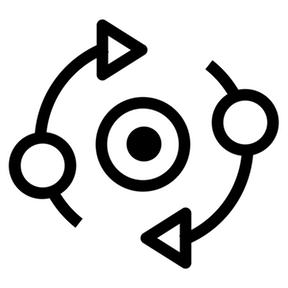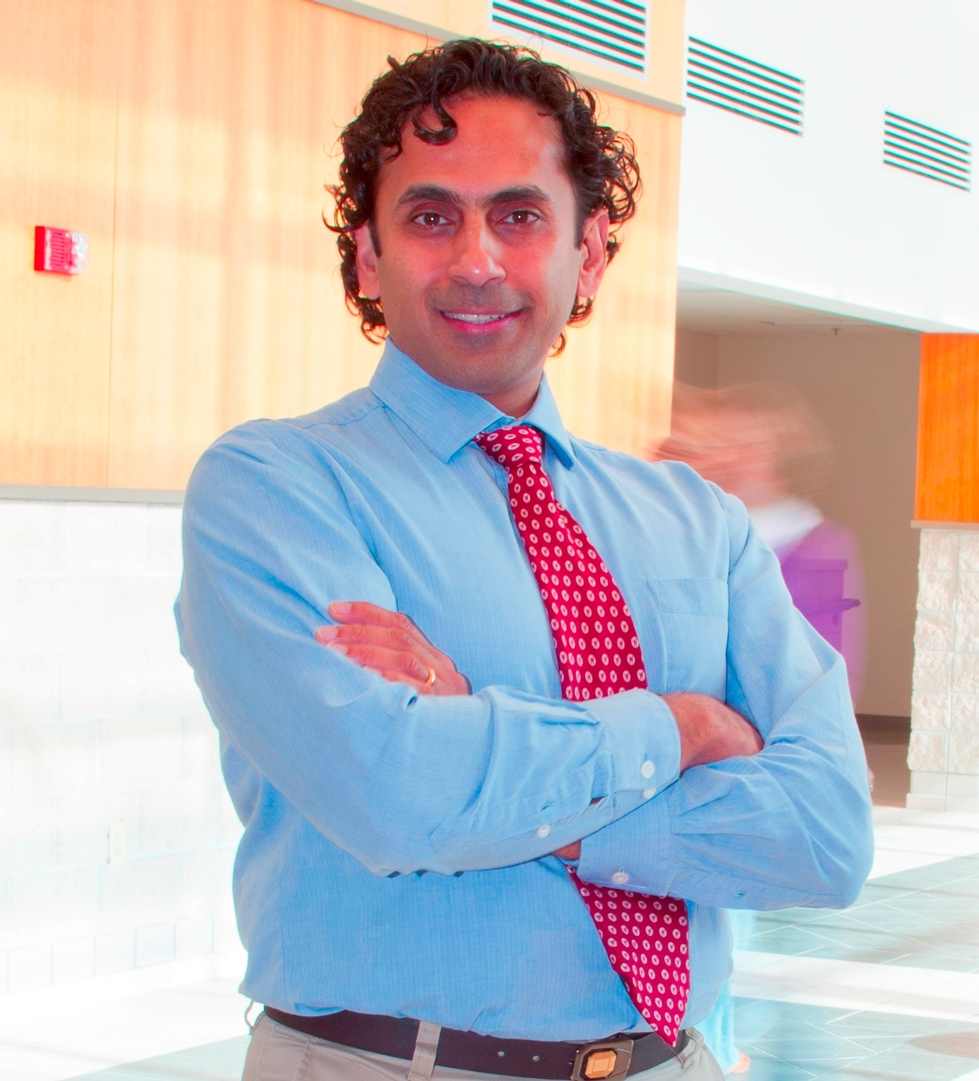Assessment Conference 2018
ACADEMIC AND STUDENT AFFAIRS ASSESSMENT CONFERENCE: PROGRAM ASSESSMENT FOR LEARNING
Friday, January 5, 2018
Eberhard Conference Center, Pew Grand Rapids Campus
- Coffee and Registration: 8:30 - 9 a.m.
- Opening Plenary Presentation and Faculty Response: 9 - 10 a.m.
- Faculty- and Staff-led Concurrent Sessions: 10:10 - 11 a.m. and 11:10 a.m. - noon
- Closing Plenary Presentation: 12:10 - 12:30 p.m.
We are delighted to host our second university-wide event focused on assessment best practices at GVSU. The theme of the 2018 conference is: Program Assessment for Learning. We are interested in a larger conversation about how we can assess student learning efficiently and effectively. As with our last Assessment Conference, we have invited an outside expert to set the stage and offer fresh perspectives on the assessment process and how we can learn the most from our individual and collective efforts. Our speaker will be familiar to those who attended the 2017 Fall Conference on Teaching and Learning. We have invited back Dr. Regan A. R. Gurung, Ben J. and Joyce Rosenberg Professor of Human Development and Psychology, University of Wisconsin, Green Bay to provide opening and closing plenary presentations. Conference attendees will then attend their choice of concurrent session wherein select faculty and staff will share their approaches to program assessment and facilitate hands-on workshops. Participants will be encouraged to bring their own plans, ideas, and questions in order to make the sessions as productive as possible. The workshop schedule is in process and will be published mid-December.
We hope to see you there. Please register in Sprout.

Conference Program Now Available Here.
Regan Gurung's Presentation Slides Available Here.
Jon Hasenbank's Presentation Slides Available Here.
See below for links to workshop session materials.

Speaker Biography
Dr. Regan A. R. Gurung is the Ben J. and Joyce Rosenberg Professor of Human Development and Psychology at the University of Wisconsin, Green Bay. Born and raised in Bombay, India, he received his Ph.D. in social and personality psychology at the University of Washington (WA).
He has authored books and textbooks including, An evidence-based guide to college and university teaching: Model teaching competencies (Boysen & Gurung, 2016), Exploring signature pedagogies: Approaches to teaching disciplinary habits of mind (Gurung, Chick, & Haynie, 2009), Health psychology: A cultural approach (Gurung, 2014), Getting culture: Incorporating diversity across the curriculum (Gurung & Prieto, 2009), and published articles in a variety of scholarly journals including Psychological Review and Teaching of Psychology.
He was Co-Director of the University of Wisconsin System Teaching Scholars Program, has been a UWGB Teaching Fellow, a UW System Teaching Scholar, and received numerous awards including the American Psychological Foundation Charles L. Brewer Distinguished Teaching of Psychology Award, Carnegie Foundation for the Advancement of Teaching Wisconsin Professor of the Year, and the Regents Teaching Excellence Award, University of Wisconsin System. He has organized statewide and national teaching conferences, served as President of the Society for the Teaching of Psychology (Division 2 of the American Psychological Association), and is the founding Co-Editor of APA's journal SoTL in Psychology.
As he states on his blog, The Pedagogical Pundit, he seeks to: (a) help teachers be the best teachers they can be, (b) help students be the best learners they can be, and (c) energize robust, sound, useful, scholarship of teaching and learning (SoTL). Learn more via his blog (PedagogicalPundit.com), website or Twitter (@ReganARGurung).
|
CONCURRENT SESSIONS |
|---|
|
How can we use GVAssess to effectively document and track our assessment work? Chris Plouff, Office of the Provost Alyse Nichols and Tonia Olisa-Nwoko, Graduate Assistants, Office of the Provost
Join us for a hands-on workshop, demonstrating how to use GVAssess to enter information for assessment of student outcomes. If possible, bring along some aspect of your assessment plan to receive assistance and feedback for entering it into GVAssess. |
|
How can we use assessment to look forward, not backward? Roger Gilles, Writing and Honors
This session, which aims to be helpful to participants with any level of experience with assessment, will begin with first principles to shift from the common backward-looking “culture of compliance” to a more forward-looking assessment of authentic inquiry. Roger will share examples from his home department, which has been practicing forward-looking assessment for many years now, and his current unit, which is making the shift toward forward-looking assessment. Participants will be encouraged to re-orient their own assessment ideas and perhaps generate new ones based on questions they genuinely have about their students, courses, and curricula. |
|
How can we develop a simple, meaningful, robust and sustainable assessment process? Sonia Dalmia, Chair, Department of Economics and Director of Assessment, Seidman College of Business
Session Learning Objectives: • Develop and implement a faculty-driven Assurance of Learning (AoL) process • Develop faculty participation and engagement in the AoL process • Understand the role of AoL in testing and refining the curricula for continuous improvement |
|
How do we holistically and authentically assess student learning in the School of Social Work? Outlining our assessment model from curriculum mapping, to classroom assignment, to closing the loop. Scott Berlin and Salvador Lopez-Arias, School of Social Work
The GVSU School of Social Work (SSW) has recently updated its assessment focusing on Social Work Competencies, through the evaluation of dimensions (Knowledge, Values, Skills & Cognitive/ Affective ability) and behaviors associated with professional practice. The SSW program also administers an assessment of our implicit curriculum through an end of program exit survey, collecting information regarding the following areas: diversity, faculty, student development, resources, and administrative/ governance structure. This workshop will provide an overview and examples. |
|
Why not ask our students? Developing a student exit survey for assessment. Scott Grissom, School of Computing and Information Systems
Scott Grissom will share how the School of CIS uses student surveys in an academic assessment process. When and what should you ask students about learning outcomes? Should you use Blackboard, Survey Monkey or add questions to the standard LIFT survey? How do you encourage response rates of almost 100%? How do you interpret the data as part of ongoing assessment? Bring twenty copies of your survey if you want to share and receive feedback. DOWNLOAD THE WHY NOT ASK OUR STUDENTS SESSION MATERIALS HERE. |
|
Can we enhance our students’ learning by closing our assessment loop? Susan Harrington, PhD, RN KCON
The purpose of assessment is to guide us in making improvements in our student learning, in accordance with established course and program outcomes. The strategy of implementing and analyzing these improvements is called closing the loop. This workshop will give an overview of the assessment process through use of the PDCA (plan, do check, act) cycle. The interactivity aspect of this session will consist of discussing a handful of examples on how best to use assessment improvements for the enhancement of student learning. |
|
What are the obstacles and opportunities in curriculum mapping? Susan Raaymakers, Physician Assistant Studies
The intent of this informal session is to have an interactive discussion about the concept and reason for undertaking curricular mapping at GVSU. Still in process in the Physician Assistant Studies program, I will share lessons, some of which were learned the hard way, of where to start, how to engage the rest of the already busy faculty, and technical challenges. DOWNLOAD WHAT ARE THE OBSTACLES AND OPPORTUNITIES IN CURRICULUM MAPPING SESSION MATERIALS HERE. |
|
If you conclude that "students can't write well," what steps should a department take next? Lindsay Ellis, English, Writing Across the Curriculum and Lake Michigan Writing Project
This session will begin with the problem of defining "effective written communication." If you hear colleagues or employers complaining that "students can't write well," what qualities are noticeably absent or weak in students' texts? The group will examine samples of student writing and discuss a variety of rubrics that aim to name the skills of effective writers or the qualities of rhetorically effective texts. Finally, we will begin reflecting on curricula across a degree, analyzing where writing skills are being taught--or where they are not. |
|
How can we use what we’re already doing? Regina Smith and Médar Serrata, Modern Languages and Literatures
This session will describe how Modern Languages and Literatures adapted assessments already being undertaken for certification purposes as well as the focused surveys administered that are once a year to look at specific aspects of instruction and advising. |
|
What is your Theory of Action? Can course assessment deliver relevance in student learning? Richard Vandermolen, Educational Leadership and Counseling and Kate Harmon, Campus Recreation
In this workshop, attendees will: (1) learn an effective inquiry approach, (2) understand the role of data in continuous improvement and relevance in course assessment, and (3) hear an example of how data can support student learning and success not only at the unit level, but in support of the overall GVSU Strategic Plan. DOWNLOAD THE WHAT IS YOUR THEORY OF ACTION SESSION MATERIALS HERE. |
THIS EVENT IS SPONSORED BY THE OFFICE OF THE PROVOST AND THE ROBERT AND MARY PEW FACULTY TEACHING AND LEARNING CENTER.

